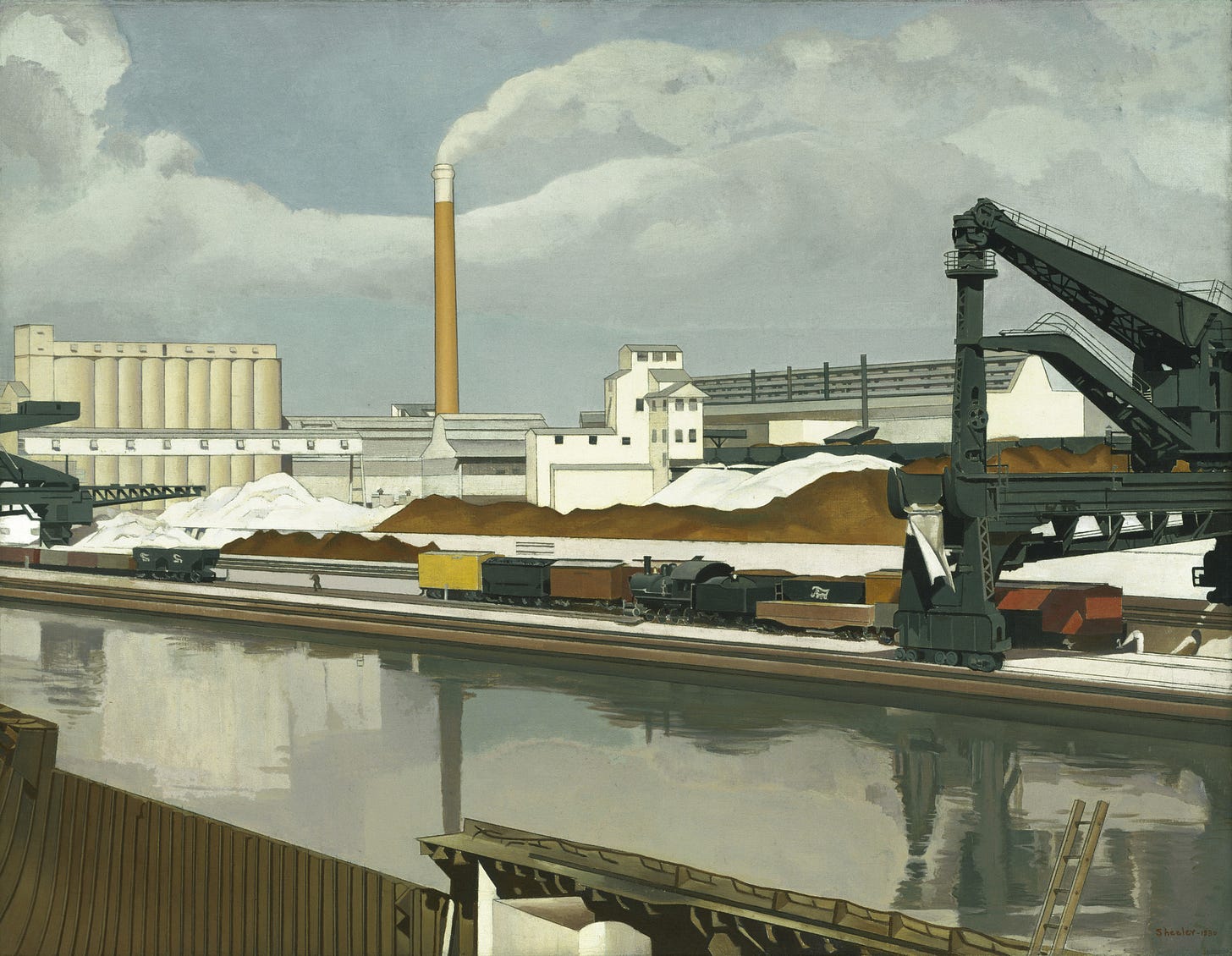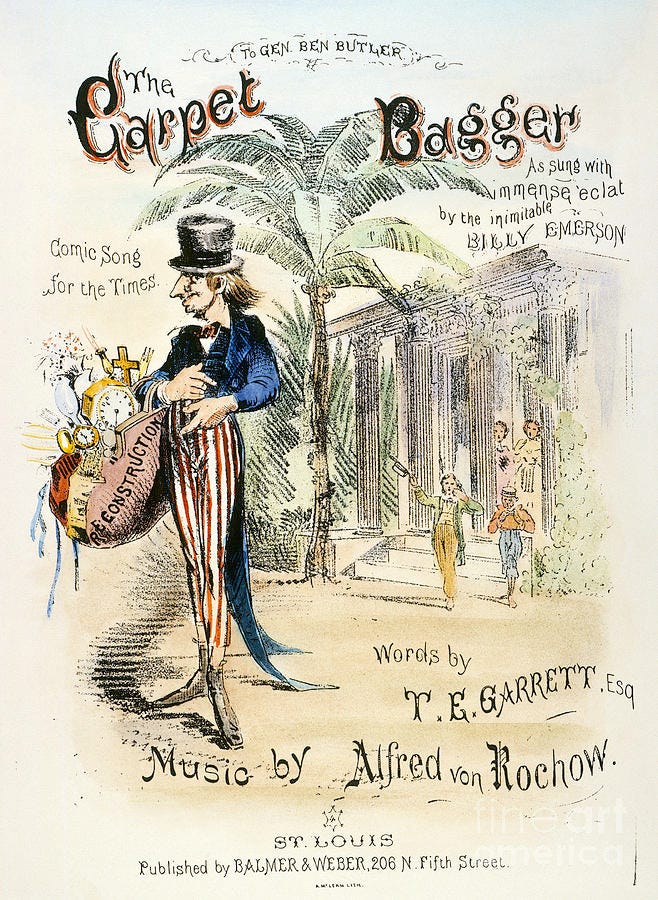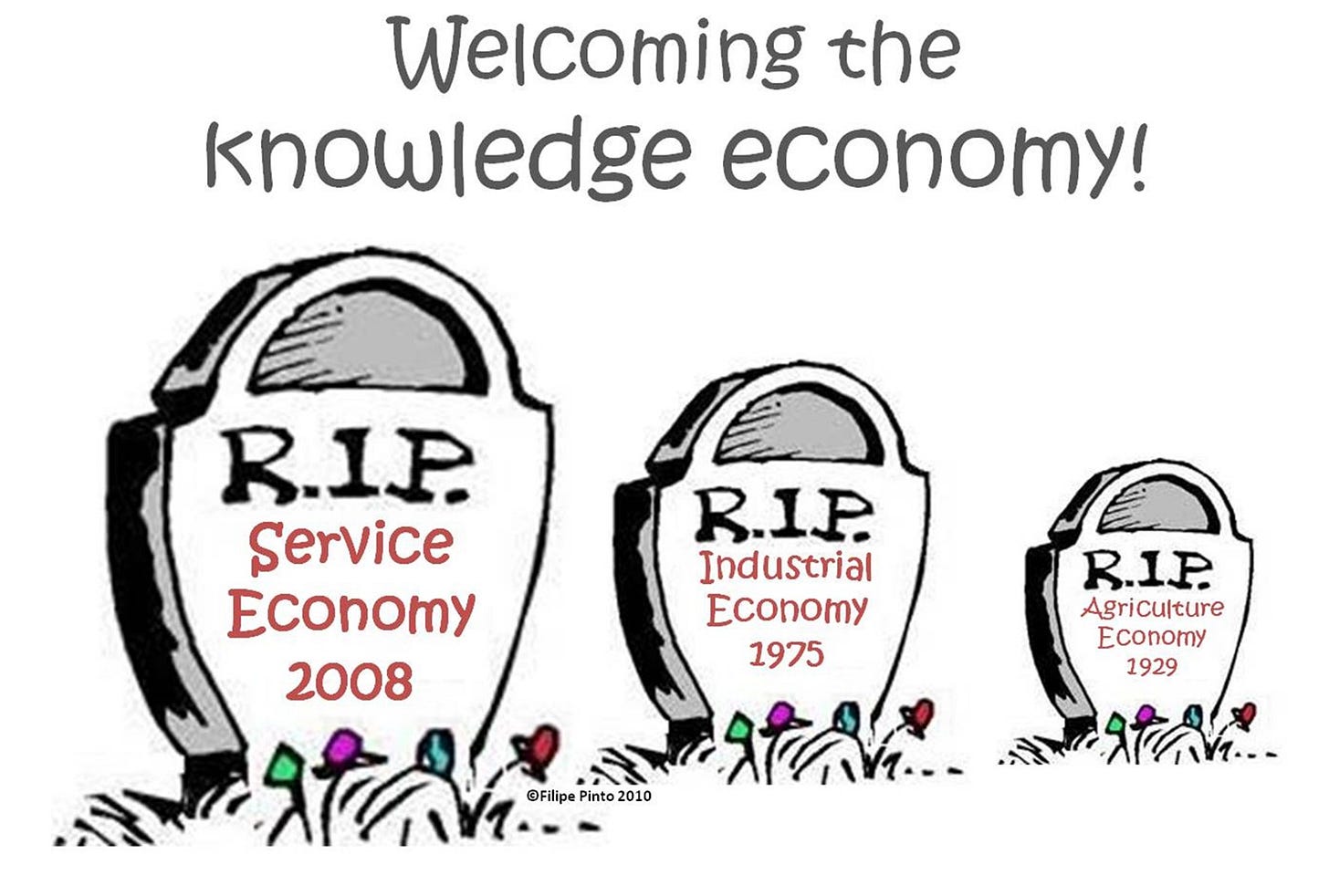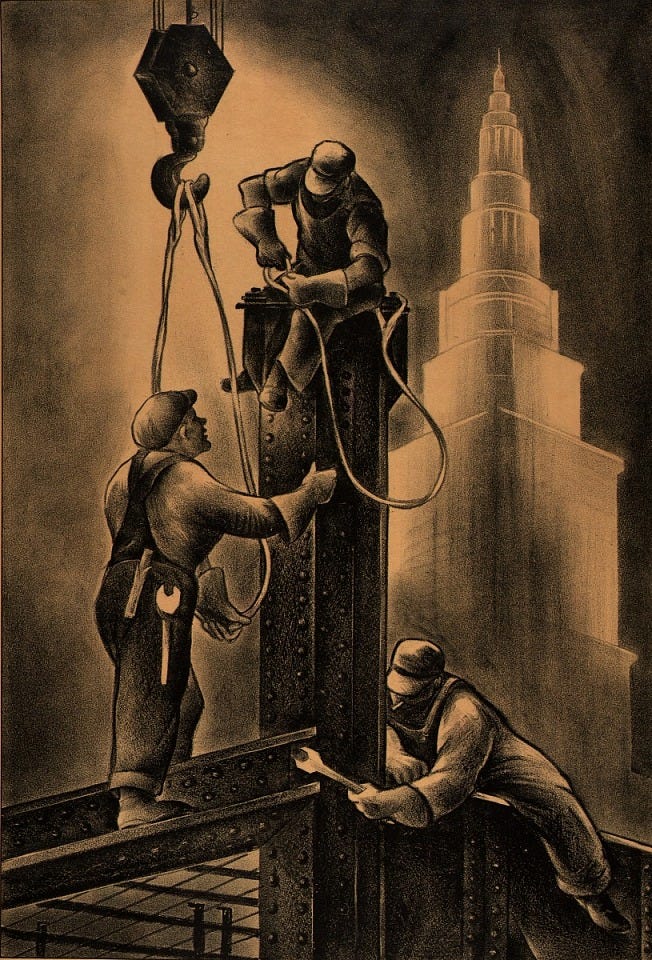Recursive Globalisms
What the Fall of the NUC Tells the Present about Responsibility.
Idranx, Dimoni Industrial/Industrial Devil
Older posts have have mentioned the societal change that our generation experienced as we entered adulthood in the 80s and 90s. There’s some oral history interest there, but this Substack tries to skew practical. Society and socialization in ways useful for making it off a sinking ship. There’s a reason the conclusion is usually some call for the [personal responsibility, anti-fragility, organic culture] family. I came to the conclusion a long time ago that that was the only viable long-term play. Seeing the Macro-Arc → 0 meant short term hedonism, but long term urgency. The point is that I’ve been thinking about it for a longer time. None of my insights or observations lead to a good alternative. I share my thoughts because enough people have found value there to make it worthwhile. By the fruits. It would be grotesquely unethical to exclude a personal pole star and the reasons for it.
The deep change was the shift from an organic, production-based end of the socio-cultural spectrum to the centralized, financialized House of Lies. They’re synergistic. Specific downstream consequences are almost endless. The immediate backdrop for the all the clown world inversion plaguing the present. It’s relevant now because a similar pattern is forming in the clown aether. It’s not something widely noted at present because most CLI and the resemblance is structural, not superficial. But it is real. And a good example of why memory matters.
It’s difficult to explain how surreal it was watching the bottom fall out of the infinite Progress! dream. The curse or blessing of Gen X is straddling worlds. The boomers and older still act like their long dead and mouldering fantasy debt blowout is “real”. With too many too stupid and ignorant to do other. Millennials and younger only know the clown world end of the House of Lies. With too many without hope or prospects outside of family or government program support. The first can’t imagine a month’s rent costing more than a month of minimum wage. The second can’t imagine wandering down to the plant out of high school and landing a job that makes them a homeowner within a few years. We were there for both.
Augustus Edwin Mulready, A Walk with Grandpa, by 1904, oil on canvas
Destruction of the cross-generational bonds necessary for sustainable culture fits in here. Culture is vertical. It needs interaction across generations. Elder wisdom guides youthful discovery feeds back into elder wisdom guides… and so forth. Slicing it horizontally ensures each tranche is deprived of aggregated wisdom & defined by contemporary beast ephemera. Society as perpetual blank slate dupe factory. Putting aside the dark humor for a moment, the historical reality is no group committed to this like the boomers. The [rejection of tradition]-[rejection of posterity] two-step has been incalculably damaging. But there is reason for optimism. The reality facing population is growing. The Overton Window is moving. It’s time to really pay attention and move forward personally.
Personal anecdote. This year, [family boomer emotional incontinence] → [first ever Christmas dinner with no boomers]. A big group of Silents, Xs, Millennials, and Zs laughing and talking together with no TV narrative laser pointers as all. None. No mention of Trump, Israel, Russia, the news, etc. No humble-bragging about the pains of travel or asset management. No interrupting with stories of strangers who did something tangentially related to the story. No interrupting at all really. It felt like a miracle. One of the younger shed tears of amazement. Everyone else can relate cross-generationally.1 The younger respond viscerally to fulfilling organic reality. And yes, it really is like the TV specials from our own childhoods. Real Christmas magic reborn.
Not a social scientist, so sticking to simple truths. A materially real society has to be able to generate what’s needed to maintain itself. Or plunder. But we tried that, so stay in morality. Every bit of quality of life above subsistence level needs surplus production per capita. This can be modeled mathematically, but the problem is that human behavior isn’t an abstract formula. Material constraints like logistics and other laws of physics bring diminishing returns. On the personal side, attitudes towards time value of money, intrinsic motivation, marginal utility, etc. do the same. When left alone, cultures appear to settle at a sufficient technological level then maintain. Historically, there’s a wide range of outcomes for however many reasons.
The Change was a transformation from production to financialization. No need to review the great offshoring of the late 20th century. Springsteen cashing in on maudlin dirges about the very real rust belt. The implosion of social structure. All underwritten by the disappearance of good livelihoods tied to place. And place is needed for any possibility of organic culture forming.
Chuck Pinson, Island Time, 2020s
Place matters because people have to coexist over time for a natural organic culture to shake out. And people have to be able to support themselves - at the sufficient level - to coexist long enough. The reality behind the need for “good jobs”. The unique circumstances that made the Progress! myth seem real tied production to place. And personal responsibility. If you work, the sufficient level is attainable. With reward for talent or initiative. Starting with farm plots and small businessmen → the industrial might of the 50s. Yes urbanization has problems, but the point is localized production = sustainable communities.
Logically, collective spending comes from per capita production surplus. Pooled resources for a functional commons. Note that [money/spending] is being referred to in the most general way. As a collectively-agreed upon measure for relative value. How effective the representation is is different from the reason for the representation. The virtue of collective spending can be judged empirically like anything else. By the fruits. Outlays that benefit the overall well-being are good. Like defence and roads. Those that don’t aren’t. The need for objective morality is beyond obvious.
Charles Sheeler, American Landscape, 1930, oil on canvas, MoMA, New York
The clown world metastasis out of the House of Lies couldn’t happen without changing the idea of wealth from production into numerology finance. With inevitable results mapped in earlier subs. And that doesn’t happen without replacing real experience with a tv-driven centralized fake media world. Supported by that same centralized financialized power.
Two Arcs, diverging. On the material comfort side, US suburbia delivered freehold status to almost everyone. Complete with the ur-screen. TV being the prototype House of Lies thought-replacement device. Purchased by the pulsee. The boom was driven by production. And production needs labor on site. Good jobs are an ethical redistribution scheme where the plutocrat keeps enough to make it worthwhile. Circumstances were unique with no logical path to assume permanence. Europe and industrialized Asia were bombed out. The Global south was still pre-modern. So how did the nascent House of Lies process this singular good fortune?
Well, the huge investments in human capital and infrastructure leveraged favorable outcomes into national improvement patterns that continue into the present. Strict social and economic policies locked in competitive advantage and preserved relative wealth. Guided by objective analysis of the optimal conditions for mass fulfillment and cultural health. All empowering the individual by incentivizing unprecedented quality of life through basic responsibility. It really was the turning point to a future so bright we all gotta wear shades.
Just kidding. Arc 2 was blow it on financialized evisceration under a cloak of gee gaws.
Financialization severs representation [money as a semiotic system] from reality [human natures & laws of physics]. It allows for theoretically limitless “wealth” creation in the hands of very few who can be physically anywhere. It’s clearer when put in the most basic terms. Material and Abstract economies make more sense. One is physically real and one isn’t. Government bureaucracies are hit from both sides. Corrupted by the financial powers and engorged by [debt as an abstraction]. It’s not a coincidence that “social spending” grows as production sinks. Government checks in lieu of making a living. To be clear - not just talking welfare.
The Carpetbagger, around 1869, sheet music cover and lyrics, Balmer & Weber, Saint Louis, MO
Check people make up a vast “economy” based on government expenditure. The entirety of the public sector, every grant or program recipient, every bit of institutional funding - all the tens of millions living off of redistributed scrip. An entire socio-economic spectrum from global elites to welfare lifers cut off from any personal responsibility for producing the lifestyle. A fundamentally different attitude towards … everything from what a production-based society needs. Material production has surplus limits. Abstract financialization doesn’t.
One of the more irritating things about the “Americans won’t work” canard is how the lack of financial incentive is completely left out. Mass post-industrial jobs in the NUC pay crap relative to the old industrial ones. There’s no social compact to share the fruits of material production when nothing is produced. And if eligible for checks of any kind, there can be little to no benefit to working. Then throw in the sudden cost of living explosion. There are actually two problems here. People won’t work if they have a comparable alternative. And work has to allow a sufficient life. Cutting off the checks would solve the low-skill side of the “foreign labor” debate quickly.
The cartoon misses the material-abstract switch but otherwise gets it.
The deeper reality is that neither low tier check living nor entry service jobs allow a sufficient life in anything like historic American terms. Throw in degeneration from materialism, ever-dumber media, nutritional deficiency, addiction, etc. Not something to turn overnight. But the notion that low grade workers are an answer is diametrically opposite the first step you’d want to take. On the economic front…
Culture broke down when production was severed from place.
Importing workers severs employment of any kind from place.
The first flew in behind a spray of lies. Bets on the second?
Which is why the future is local. Grass roots. Organic networks. Sustainable production. When place offers promise of sufficient, hope returns. Optimism follows. And actual meaningful culture can grow. It isn’t easy. But it’s real. What’s the other viable choice?
Russell T. Limbach, Steel Workers, 1934, lithograph on paper, Smithsonian American Art Museum
I never noticed how socio-mentally constipated they are compared to every other generation. They really are the problem.













"The first can’t imagine a month’s rent costing more than a month of minimum wage." - did you mean a week at minimum wage?